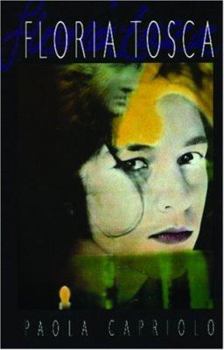Floria
Based on Puccini's opera, Floria Tosca reinterprets for today's times the relationship between Scarpia, chief of police, and Tosca, singer and lover of Cavaradossi, the radical, whom Scarpia plans to arrest and torture. In elegant, precise writing, Paola Capriolo takes us to a world where love and hatred, piety and devilry, abstinence and desire come together.
Format:Paperback
Language:English
ISBN:1852423811
ISBN13:9781852423810
Release Date:July 1997
Publisher:Serpent's Tail
Length:224 Pages
Weight:0.05 lbs.
Dimensions:8.0" x 0.5" x 5.3"
Customer Reviews
4 ratings
TOSCA TRIUMPHANT
Published by Thriftbooks.com User , 25 years ago
In Floria Tosca, Paola Capriolo has captured the dark essence of Sardou's Tosca most perfectly. Told exclusively from the viewpoint of Baron Scarpia, chief of police, this extraordinarily elegant tale recounts the consequences of people who are driven to go to far: people who cross the line, step over the threshold, give way to dark passions that might be better served if held in check. Although Floria Tosca is an erotic tale of sadist and masochist, Capriolo's rendering is so perfect we cannot fail to be amazed at the balance she strikes between love and hate, abstinence and desire, pleasure and pain. Everything about this book is perfect: the characterizations, the pacing, the restrained melodrama, and most especially, Capriolo's elegantly archaic prose. She writes in such a way that we can't help but believe we are truly reading the words of Scarpia, himself, words he set down in his own hand on a mid-summer's night in 1860s Rome. The fact that Cavarodossi never appears "onstage" is a credit to Capriolo, for he is never missed. It is the erotically passionate interplay between Tosca and Scarpia that forms the real heart and soul of this story. Opera lovers can't fail to fall in love with Floria Tosca. And even those who've never seen an opera will be astonished at the eloquence of Capriolo's style. If I had to sum this book up in only one word, the only word I could choose would be, perfection.
Move over, Sardou!
Published by Thriftbooks.com User , 26 years ago
Would that Puccini had based his opera on Paola Capriolo's brilliant rendering of the Tosca story rather than on Sardou's Grand Guignol melodrama! Even in the opera, though Cavaradossi has the most beautiful arias, he is a nonentity compared with Scarpia and Tosca -- imagine him completely off-stage, as he is in "Floria Tosca," take that grinding, inexorable crescendo of horror in the second act music and hear it in Scarpia's "Paradise," and enter the tortured mind of that brilliant villain as he pursues not Cavaradossi or Angelotti, but the Madonna/whore he sees in Tosca. Capriolo has perfectly captured the language, tone, and philosophies of time of Napoleon, and Liz Heron's translation rings beautifully true.
Love-Death
Published by Thriftbooks.com User , 28 years ago
Warning: Capriolo's "Tosca" performs open heart surgery on melodrama, pulls back the scrim, dries the blurry tears of sentiment, to show that the core appeal of Puccini's opera is to the death-wish. The author must have composed the novella with her ear on Callas and her eye on Nietzsche and Freud. This is a diabolically beautiful novella, which can be read in about the time it takes to listen to the final act of "Tristan and Isolde" -- but read preferably by candlelight.
Tosca undone
Published by Thriftbooks.com User , 28 years ago
Baron Scarpia is not the only evildoer in this story - Tosca is not much holier. The author spins a tale of preordained descent into a private hell. It is a trip that plays out like a greek saga. Beautiful.





